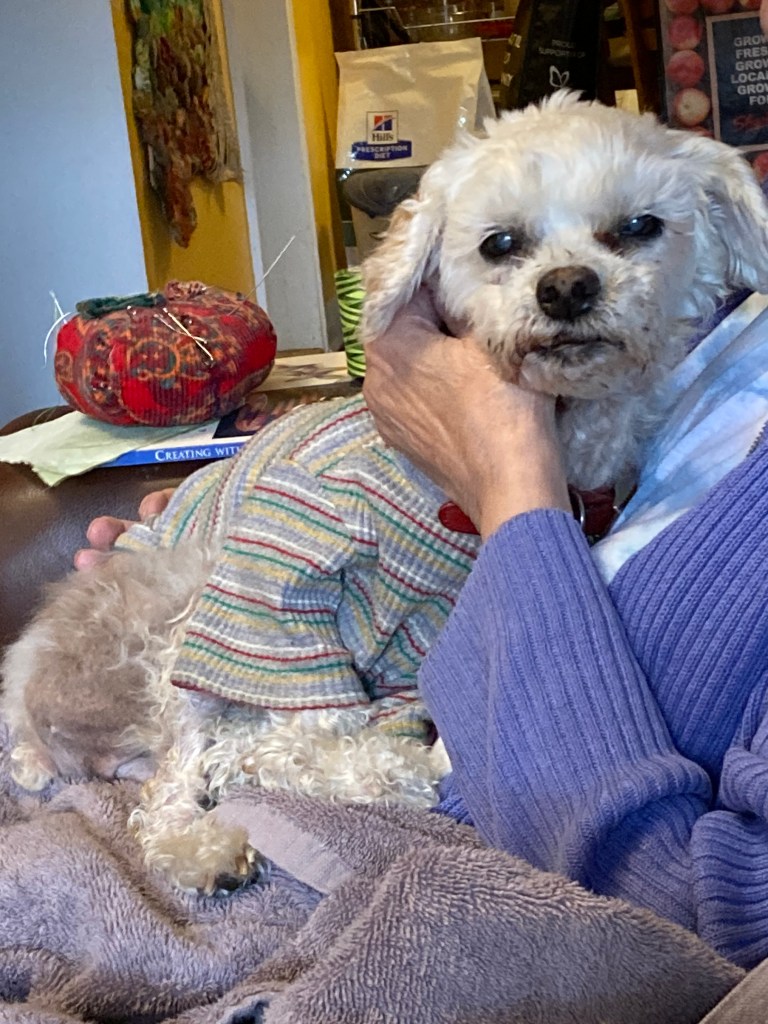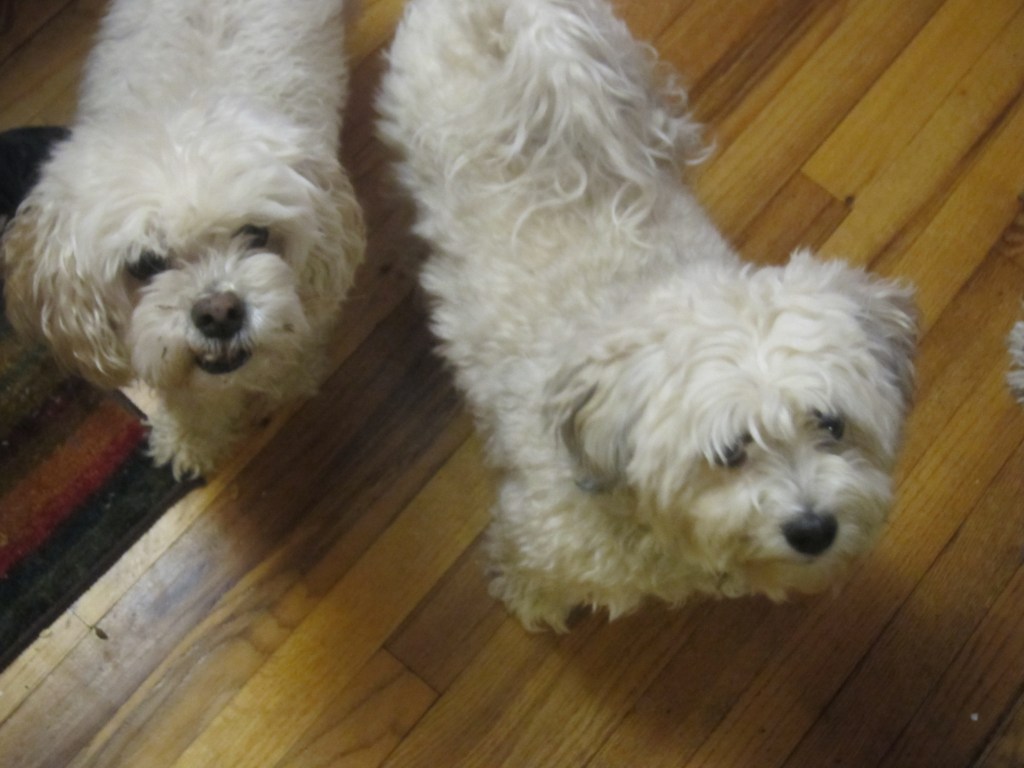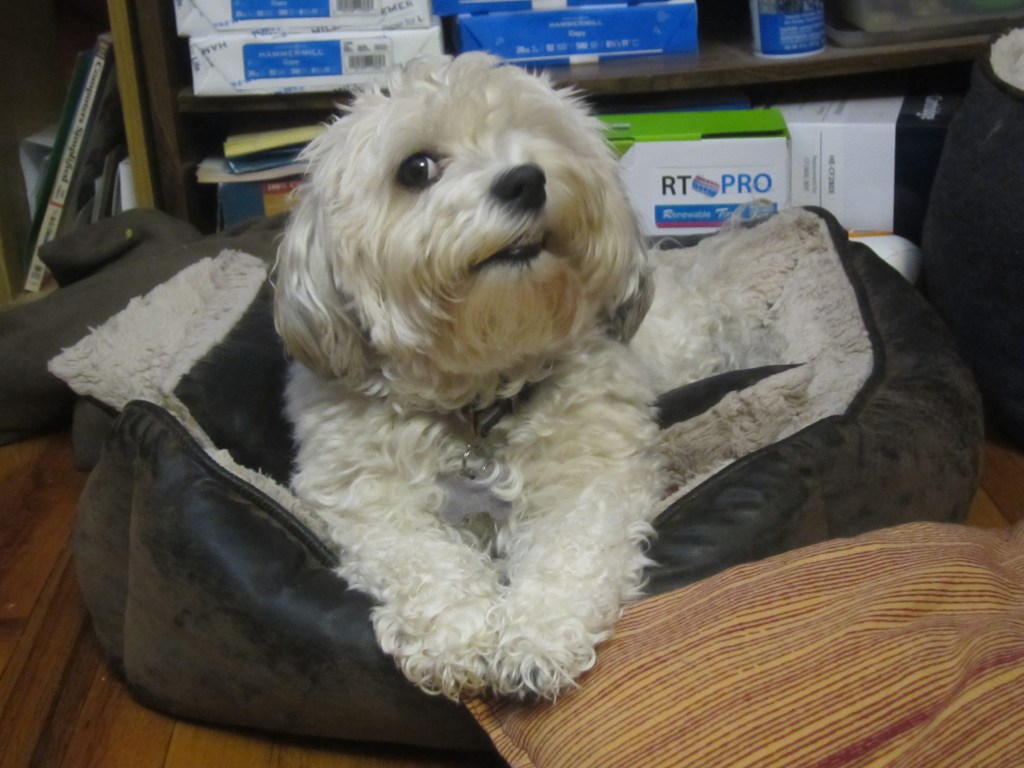Two and a half years ago, I started to work with a nutritionist who specialized in Intuitive Eating. I really wanted to believe that Intuitive Eating would be the answer for me, because I was starting to believe that I would have to be on starvation diets for the rest of my life, and I knew I couldn’t live like that. The nutritionist worked with The Intuitive Eating Workbook, by Evelyn Tribole and Elyse Resch, and had a lot of experience working with people with trauma backgrounds, and autoimmune disorders, and a history of eating disorders, so she seemed like the right person to help me feel safe with food, and feel comfortable in my body, and be able to maintain a healthy weight.
We worked through all of the exercises in the Intuitive Eating Workbook together, charting my hunger and fullness levels, writing down all of my destructive thoughts around food and learning how to reframe them, and overall trying accept that dieting, or restricting food in particular, was not a good long term answer to my problems, given all of the evidence that diets lead to more eventual weight gain. I worked hard at balancing my meals, adding more protein to breakfast, and more vegetables to lunch, and more fat here and there so that I would feel full at the end of each meal. But despite all of my efforts, my weight continued to go up, a little bit at a time, until I’d gained back everything I’d lost on Weight Watchers five years before. The nutritionist said that, given all of my efforts, she was sure I would have been more successful with Intuitive Eating if only I hadn’t been suffering from so many other health problems at the same time, and I tried to believe her, and kept trying.
And then, a few months ago, I started to get a series of out of range blood test results. First my Adrenal values were high, and the endocrinologist sent me for a CT scan of my abdomen to see if there were nodules on my adrenal glands causing the raised numbers. But my adrenals were clear, and a repeat blood test showed that my Adrenal levels were back to normal, but now my liver values were high. So I was sent to the gastroenterologist, who sent me for an ultrasound of my liver and redid the blood tests, again. The new blood tests said that my liver values were normal, but the ultrasound showed a severe nonalcoholic fatty liver, and both the gastroenterologist and the endocrinologist said that weight loss was the only currently accepted treatment for a fatty liver, and if I didn’t address it now I could end up needing a kidney transplant down the line. But after so many years of trying every diet and non-diet available, I felt hopeless, so they suggested weight loss medication. In the past, the options for weight loss medications were generally too dangerous or unreliable to be recommended by most doctors, but with recent advancements in the field there has been more hope, or at least more things to try. And after all of the doctors’ visits and variable blood test results and finding out about the fatty liver, I was desperate enough to agree to try Ozempic.
I thought that my nutritionist would be against the whole idea of a weight loss medication, since it goes against the accept-your-body-as-it-is principles of Intuitive Eating, but she was on board immediately, for the sake of my overall health. But I still felt uncomfortable. I’d heard all kinds of the stories about the gastrointestinal side effects of Ozempic and other drugs like it, and there has been so much shame in the air around celebrities taking Ozempic, either because people think that taking a weight loss drug is frivolous or because they think it’s a sign of weak character. I was also worried that my health insurance wouldn’t cover the medication, or that I’d be one of the people who didn’t lose weight on Ozempic, or worse, that taking Ozempic would destroy my ability to enjoy eating, which I rely on heavily to get me through so many other things in my life.
But my health insurance paid for the Ozempic prescription, and I took that as a sign to move forward with it. I started at a low dose a few weeks ago, and so far there haven’t been any side effects, or any impact at all. I’m okay with taking it slowly, and building up the dose at a pace that my body can handle, but I’m still worried that as the dose goes up so will the side effects, and that even on a higher dose I won’t lose weight, since so many medications that seem to work for other people haven’t worked for me.
But all I can do now is wait and see what happens, if the Ozempic works for me or not, and if weight loss will return my liver to a healthier state or not. In the meantime, I haven’t given up on Intuitive Eating, because even if it hasn’t changed my body, it has done a lot to change my mind, calming the noise in my head around food and weight and body type, and that relative quiet has left room for more positive thoughts to creep in. And as a result of that realization, I’ve started to adapt some of the Intuitive Eating exercises to see if they can help me create more calm in my mind around writing, where the noise has been even louder than it ever was around food.
Whatever happens, I’m hopeful that progress will continue from all of my efforts, even if I’m not sure what that progress will look like.
If you haven’t had a chance yet, please check out my Young Adult novel, Yeshiva Girl, on Amazon. And if you feel called to write a review of the book, on Amazon, or anywhere else, I’d be honored.
Yeshiva Girl is about a Jewish teenager on Long Island, named Isabel, though her father calls her Jezebel. Her father has been accused of inappropriate sexual behavior with one of his students, which he denies, but Izzy implicitly believes it’s true. As a result of his problems, her father sends her to a co-ed Orthodox yeshiva for tenth grade, out of the blue, and Izzy and her mother can’t figure out how to prevent it. At Yeshiva, though, Izzy finds that religious people are much more complicated than she had expected. Some, like her father, may use religion as a place to hide, but others search for and find comfort, and community, and even enlightenment. The question is, what will Izzy find?













